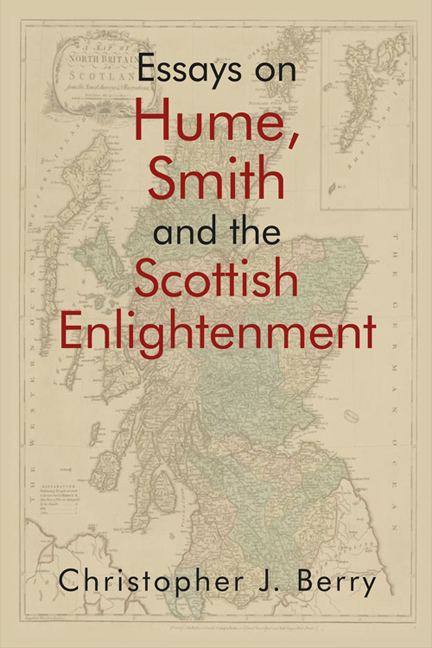14 - Science and Superstition: Hume and Conservatism
Published online by Cambridge University Press: 06 May 2021
Summary
It is convenient, probably inevitable, to affix shorthand characterising labels to major thinkers. Sometimes these are simply a reflection of the thinker's own self-identification, so that Marx is a ‘communist’ and Jefferson a ‘republican’. But in other cases the labelling is an attribution, so Locke is a ‘liberal’ and Machiavelli a ‘realist’. In this second category Hume is a ‘conservative’. These attributive labels are gross-grained summary judgements and they can thus be qualified, or indeed rejected, by a finer-grained analysis. Hence Locke's supposed liberalism can look less secure when his view of toleration, for example, is subject to closer scrutiny; and Machiavelli's supposed ‘realism’ can be seen as distortion when viewed in the context of his ‘virtuous’ republicanism.
Here I want to argue that Hume as a conservative is similarly a shorthand label that is at least insecure and at most a distortion. I do not want to claim that the label is fanciful or without justification, but to raise questions as to its accuracy once it is subjected to further inspection and, consequently, to doubt its aptness or utility in capturing what is a key characteristic of Hume's socio-political thought. This argument is constituted as follows. After some preliminary refinement of the topic, I then, in order to establish that the paper is not attacking a ‘straw man’, identify in Part I those aspects of Hume's thought that most securely underwrite attributing the conservative label. In Part II I construct an argument to render insecure the conservative label and, also in so doing, suggest or intimate grounds for the further claim that, when his commitment to ‘science’ and his polemics against superstition and other ‘chimerical’ practices and principles are taken on board, the stronger case that the label is a distortion can be judged to have substance.
Firstly, though, I am excluding from consideration that line of interpretation that reads Hume as becoming conservative (or more conservative) as he grew older. Even if this is true, and the evidence is not decisive, it itself implicitly recognises the ‘insecurity’ of Hume's conservatism and thus removes the rationale for this chapter.
- Type
- Chapter
- Information
- Essays on Hume, Smith and the Scottish Enlightenment , pp. 247 - 263Publisher: Edinburgh University PressPrint publication year: 2018



